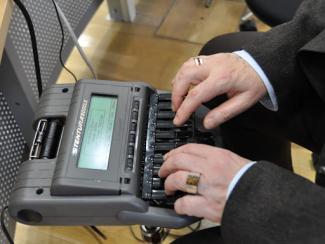
To us, African American English (AAVE) isn’t hard to understand. It’s our language, our dialect, our accent. But in court, “talking while Black” actually hurts our community.
Anecdotal evidence of us being misunderstood is infinite. But when a Philadelphia study collected data, they found that reporters have to score 95% accuracy on tests to be certified - but both Black and non-Black stenographers averaged just 59.5% accuracy on sentences using AAVE.
In that study, “He don’t be in that neighborhood” was interpreted as, “We going to be in this neighborhood.” And in 2007, a Sixth Circuit Court of Appeals claimed a Black woman was already shot after she really said, “He finna shoot me.”
Reporters create official court transcripts, which officials refer to later to make decisions. Even jurors base our credibility on a misunderstanding of or prejudice against AAVE. That infamously happened during the George Zimmerman trial.
Both circumstances significantly impact trial outcomes.
Anti-Blackness is entrenched in every part of the criminal legal system, even down to the way we speak and are heard. But that doesn’t mean there is anything wrong with our language. AAVE is our vocabulary, grammar structure, and melody. The system will perish before our culture does.